Features Of GPS Navigation System For Trucks
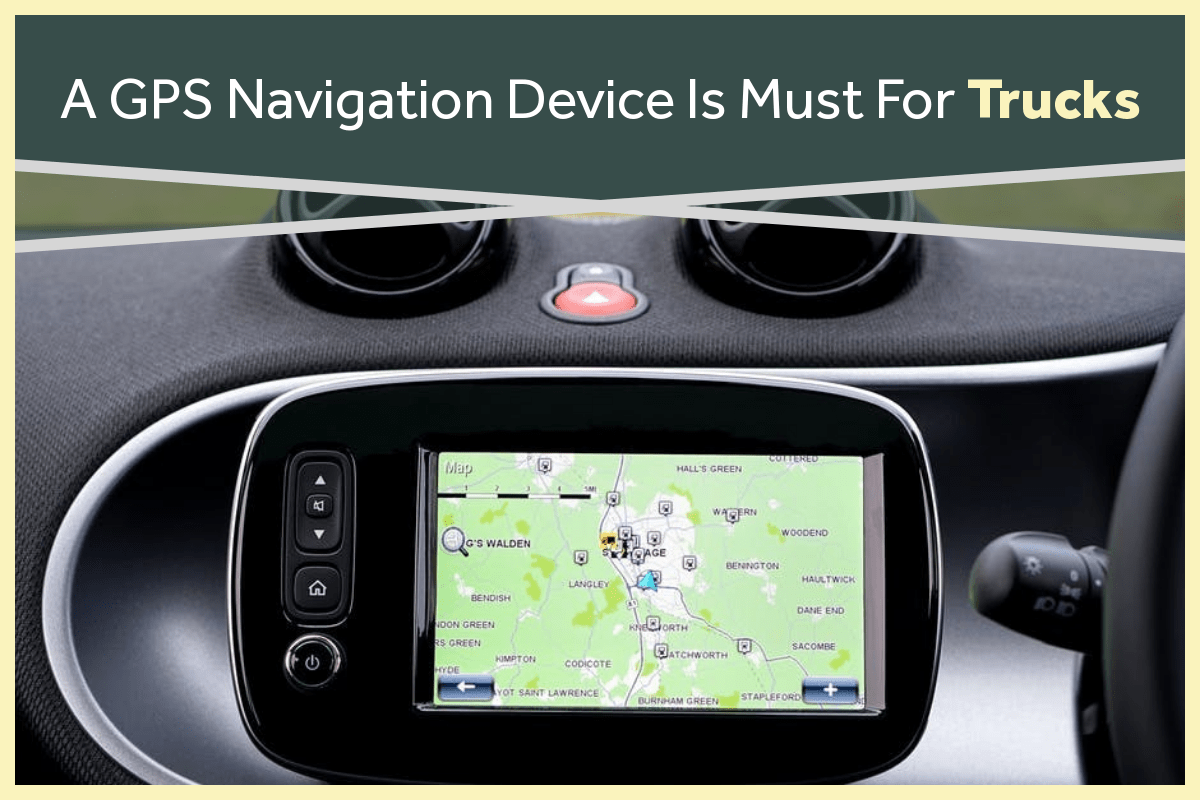
GPS navigation systems have revolutionized the way people travel. Knowing the exact time of arrival, the exact location of a vehicle and the most convenient path to the destination was never possible back in history. If a road was closed for maintenance, there was no way to know about it. If a truck wouldn’t fit on a particular road, there was no way to know about it beforehand. Delays were normal. Mishaps were avoidable even when the vehicles were running at a lower speed as compared to the times now. But the times have changed with the invention of GPS tracking systems.
There are numerous “must-have” gadgets and tools that every truck driver must have in his truck. A GPS for trucks, is amongst the top gadgets. The dash-mounted GPS decreases the chances of truck drivers getting lost or accidentally taking a longer route. In the longer run, it ensures that the driver is filled with confidence even on new or unfamiliar routes. For a person who drives for a living, this helps sticking to the schedule and makes the overall experience more enjoyable and comfortable.
Compared to the benefits of a GPS unit, costs are close to negligible. A good GPS for trucks would cost anywhere between $150 and $350. It’s important to take time to find the one that satisfies your requirements.
Features of GPS for Trucks
There are a lot of benefits of having a solid and sturdy GPS for trucks. Let’s look at the features of GPS and the benefits they ensure.
1. Customized Truck Routing
Choosing a GPS unit that let’s you customize trucking routes is extremely beneficial for trucking companies. Choosing a car-based system might take you through a bridge that doesn’t accommodate heavy-duty vehicles. It could even take you through routes that are only accessible by car.
A standard GPS can be used, as long as there are features and options to support trucking routes. Customized truck routing lets you enter the height, width, length, weight and axle load for your truck and find a route that takes into account size, weight, clearances and curvy roads.
The feature of multi-stop route planning lets the truck drivers to plan their entire route (including truck stops and rest stops along the way) and time manage their schedule accordingly.
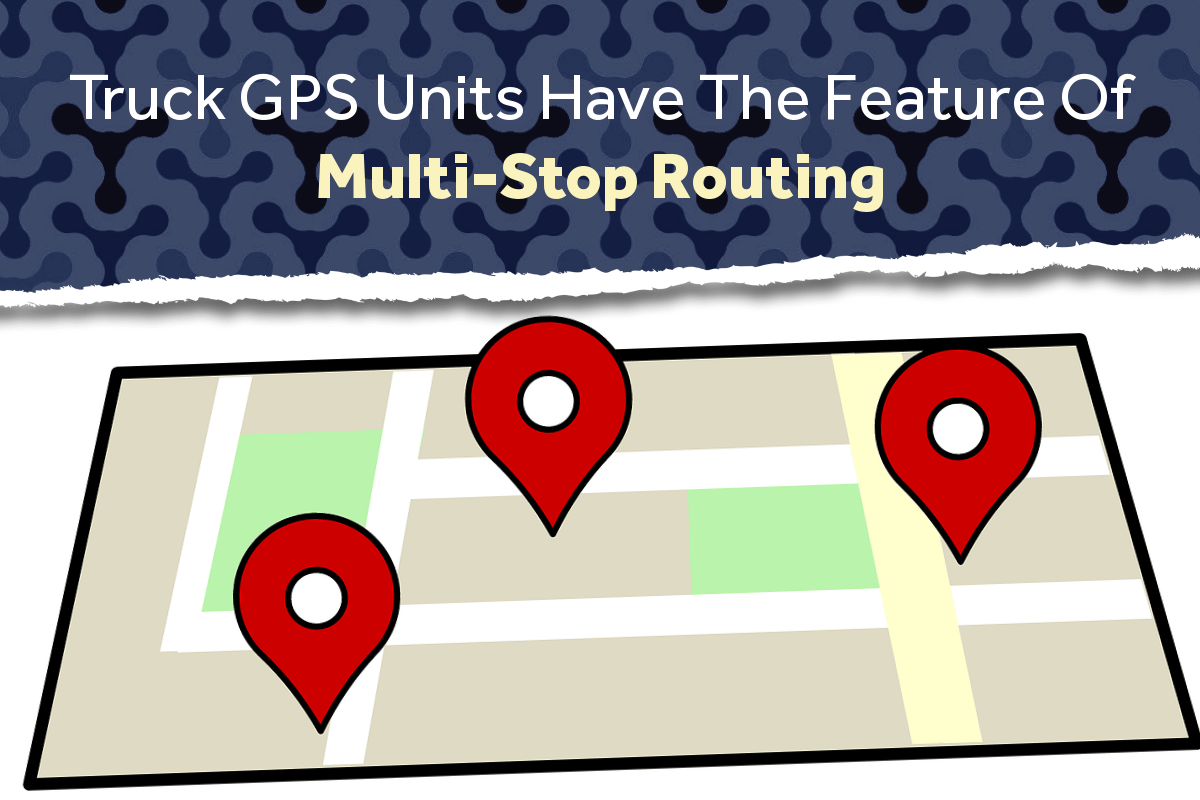
3. Toll Estimates
GPS systems that inform you where the tolls are and their cost, especially for heavy-duty vehicles will help you reduce a lot of the expenses faced by truckers and trucking companies. The GPS for trucks should tell the driver the route, the tolls and the estimated amount he/she might have to spend. It should also be able to provide the driver with alternate toll-less routes.
4. Bridge and Overpass Information
There are bridges which do not accommodate heavy-duty vehicles or commercial trucks and there are a few overpasses which are low enough that trucks cannot drive underneath them. Also there are roads that are restricted to exclude trucks above certain dimensions and weight. GPS systems for trucks should indicate this information to drivers so that they can avoid these routes and take alternate routes to avoid possible mishaps and inconveniences.
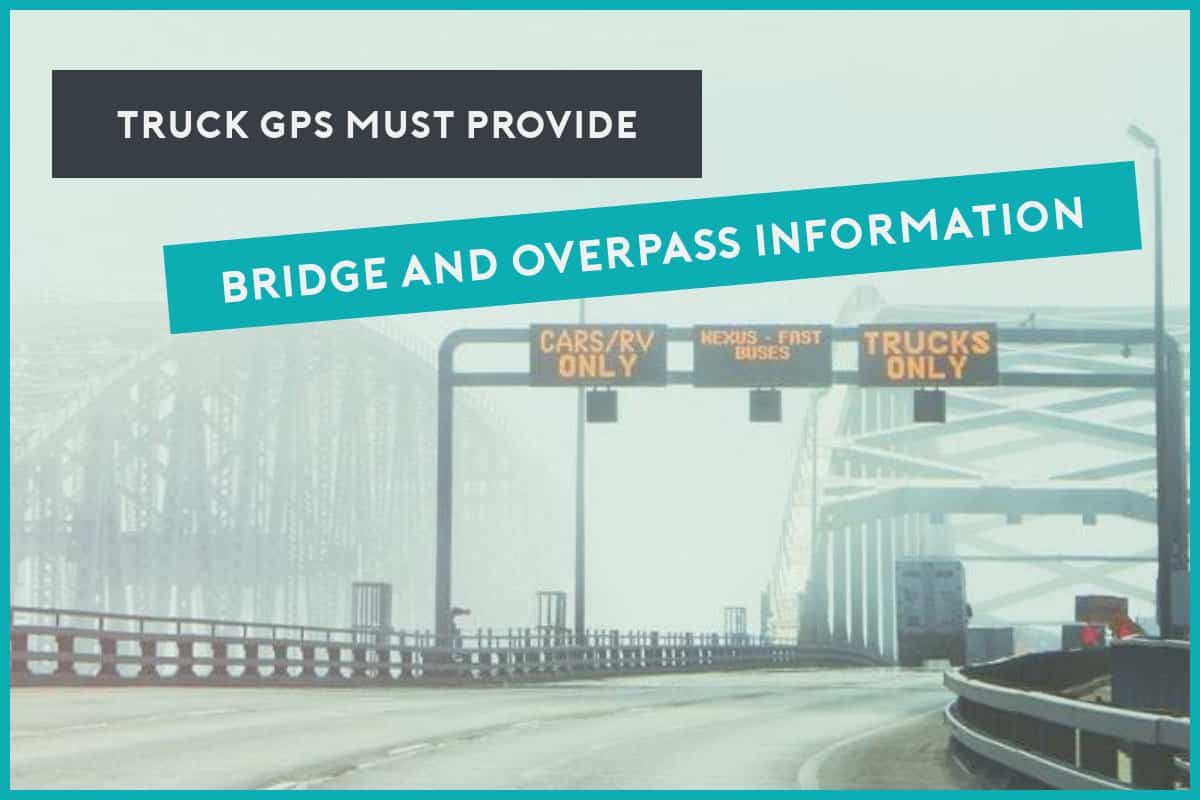
5. Durable for Trucks
As a GPS that will be used more often than a personal GPS, it should be able to run for hours at a time, get charged quickly and withstand a rugged setting. Good battery backup, a high speed processor with the option of extending memory and a sturdy device are some other essential features.
6. Good Audio and Visual Capabilities
Visibility is important for truckers for clearly viewing both road and the map. Saving an extra buck by buying a GPS device with a 3.5 inch screen is not an act of wisdom. Clarity is directly proportional to size. Touch screens are easier to use when the screen size is at least 5 inch. The easier it is for a trucker to view the map, the lesser he’s distracted from the road. The best size for a truck GPS’s screen is definitely 7-inch. The screen should be well-lit and should come with a high resolution display to ensure clarity of information displayed.
A truck GPS should be able to provide timely audio and visual alerts and warnings. Thus, the device must have good speakers for clear audio.
7. Trip Logging
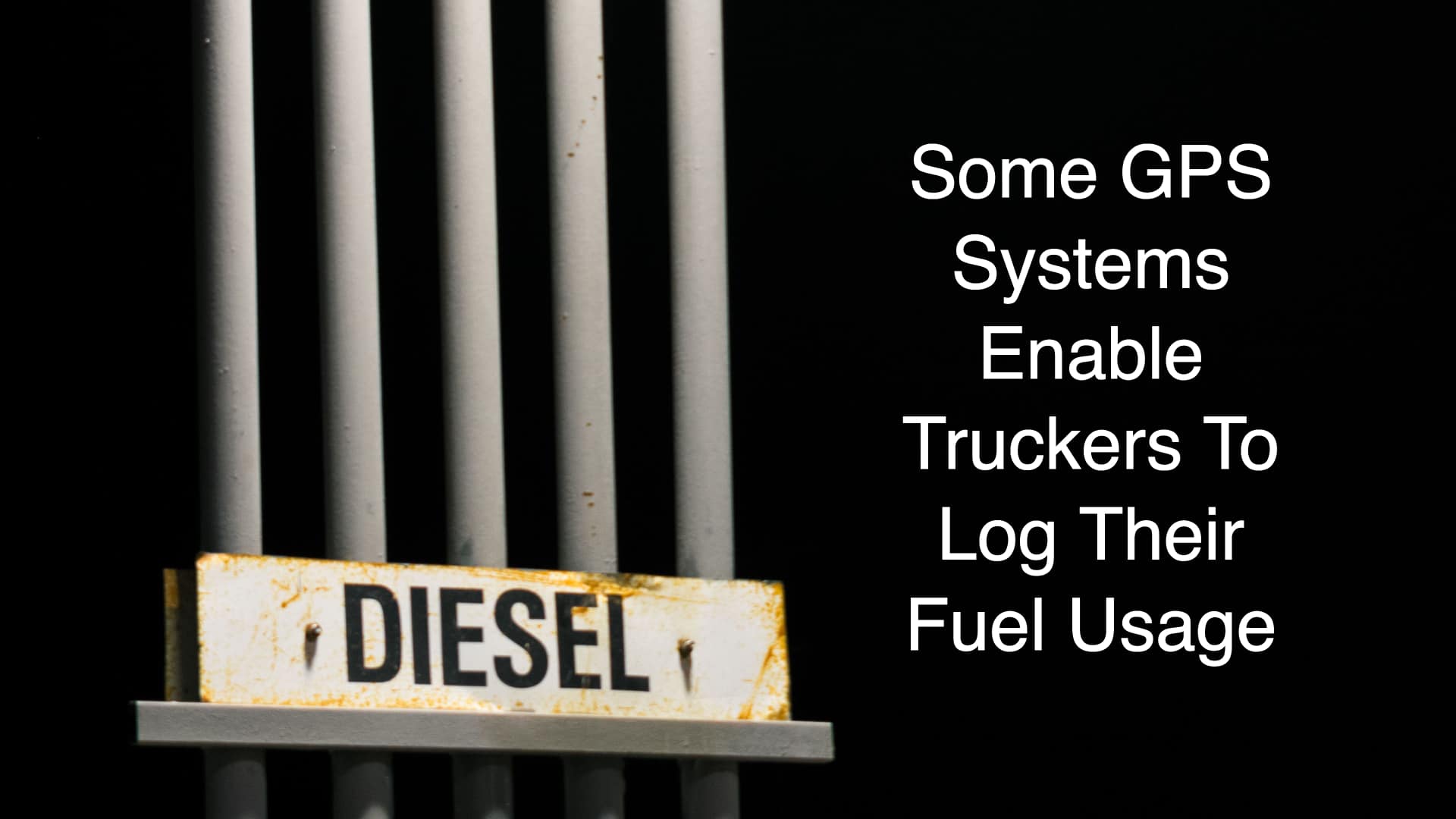
Some GPS systems enable truck drivers to log their fuel usage, driving hours and other IFTA data. These devices are capable of automatically calculating mileage for the miles run. This helps truckers enjoy a comfortable run on the road with an accessible dashboard on hand to view every information that they need. Some GPS devices even help with handling of important paperwork.
Also, automated electronic logs can be maintained for scheduling maintenance checks and safety inspections, monitoring driving status and timeliness, and ensuring good information organization.
8. Offline Maps and Map Updates
GPS devices for trucks use satellite signals to track the truck’s position and guide it along the plotted route. Poor or no internet connectivity does not create any problems in navigating the map. Any delays due to internet connectivity issues can be totally avoided by using dedicated truck GPS devices.
Infrastructure keeps on changing. The feature of lifetime map updates is mandatory as it refreshes the locally stored maps and databases to add new roads, new points of interest (POIs), new traffic directions, changed or updated names of roads, information about closed roads and other diversions due to construction or renovation of roads or bridges.
9. Built-In Dash Cam
Road accidents happen all the time. Whoever might have made the mistake, damage is always caused, and investigation always follows an accident. Build-in dash cams come handy in case of unfortunate collisions on road as they automatically record footage of the incident and provide the necessary legal evidence for proving one’s innocence.
10. Nearby Amenity Search
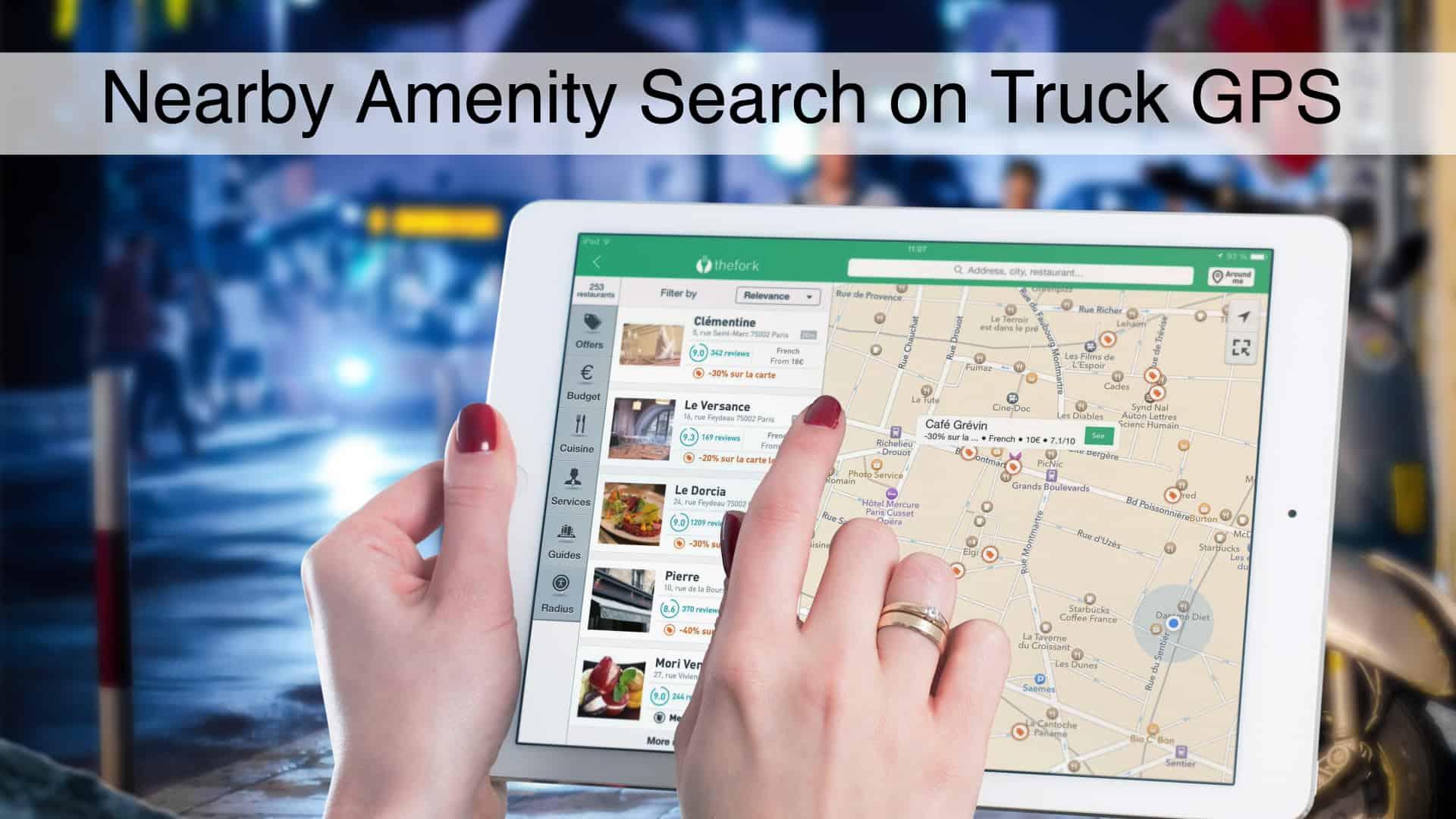
A trucker needs to take his stops. Being able to find nearby POIs such as truck stops, weigh stations, rest areas, eateries, parking and lodging, and being able to sort them by ratings or preferred amenities is every trucker’s true convenience.
Truck and Trailer Service Directory on a GPS device is really helpful when the truck breaks down on the road or urgently needs maintenance as it provides locations of 30,000+ garages and service stations in USA and Canada along with information about their hours of operation.
11. Alerts and Assistance
Truck GPS have built-in databases and audio and visual features for clearly notifying what lane to take, which highway rules to follow, when to expect turns, what exits to follow and what speed limits to drive in. Some GPS devices even have the feature of 3D map views which is really helpful at interchanges as it ensures best lane positioning.
GPS designed for trucks should alert drivers to red lights, speed cameras, sharp turns, steep grades, roadwork and any other relevant information to ensure hazard-free driving.
12. Mounting Option
It’s important for any GPS to have a secure locking mount so that it can be positioned on the dashboard of the truck conveniently. Using a dash-mounted GPS is way more convenient than using GPS on phone as you can easily handle it even while driving.
Hand-held GPS devices cause visual (as eyes are taken off the road), manual (hands are busy in holding or operating the device instead of steering wheel), and mental distraction (mind is taken off the road) which cause accidents. Having a securely mounted GPS device ensures that your phone stays available all the time for calling and other features.
13. Connectivity
Some GPS devices can be connected to smartphones using cables or bluetooth. This lets the truck driver get live traffic, police and road information from GPS Applications like WAZE.
Also, Wi-Fi connectivity allows truckers to keep track of the weather forecast data and fuel prices.
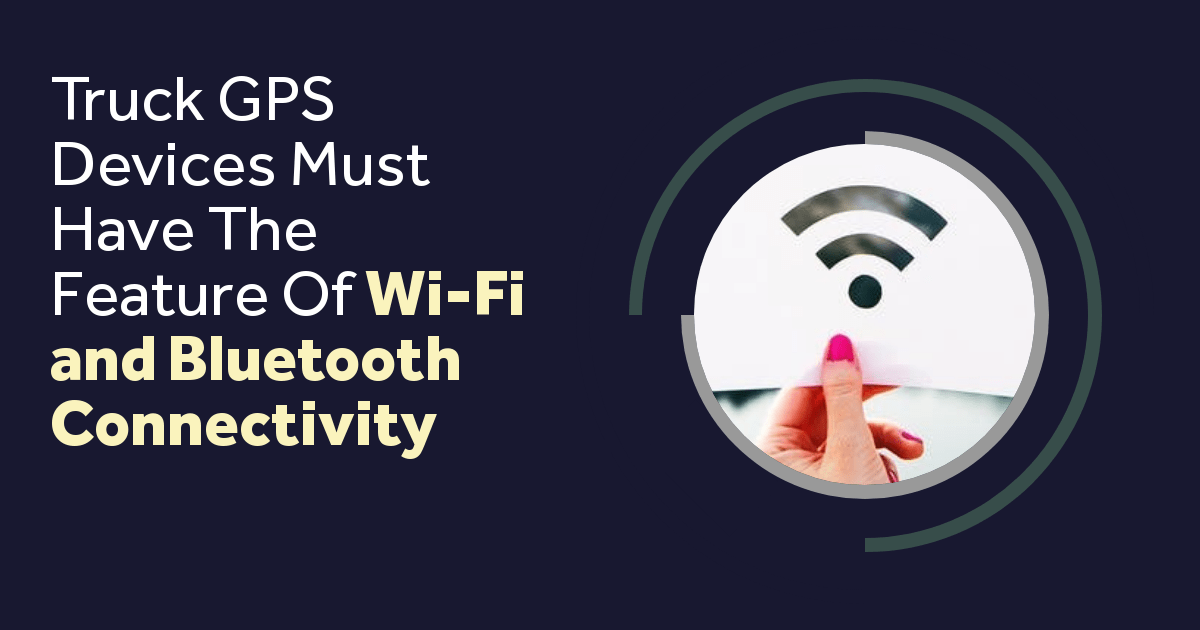
GPS: Choosing the Best Option
There are a large number of GPS units available for trucking companies, to choose from. Moreover, there are hundreds of GPS manufacturers, different varieties of models with unique features.
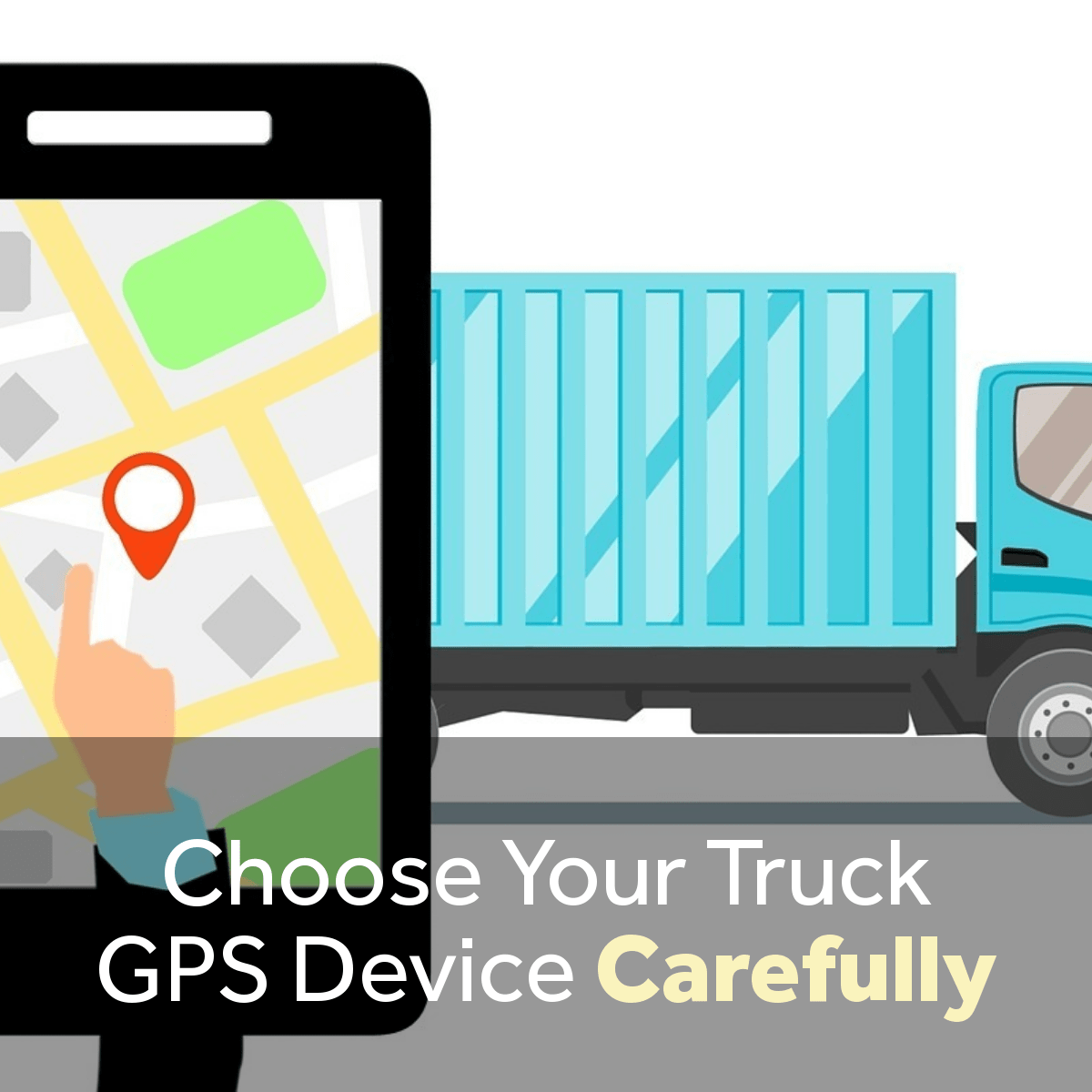
It is important to look at the qualities each model is offering. Choosing the one that matches what you are looking for will ensure that the GPS does exactly what you want it to and provides you with a reliable route no matter what. Some of the features you need to look at, in the unit are
- Quad-core processor or better
- Fuel-use Logging
- Well-Lit 5″-7″ Touch Screen
- Sturdy construction
- 16 GB Memory with option of extending memory
- Bluetooth and Wi-Fi connectivity
- Customized Multi-Stop Truck Routing
- Adjustable clear and loud speakers
- Lifetime Map and Traffic Updates
- Warning and Alert Notifications
- Compatibility with back-up camera
- Truck and Trailer Services Directory
- Truck-specific POIs and services
- Friendly user interface
- Maintenance ans service interval tracking
- Lane assistance
The trucking features are something that every trucking company needs to look for while purchasing a GPS unit. These features will make the GPS device more beneficial and reliable for the truck driver. When you decide exactly what you want your GPS system to do, it will be easier to make your choice.
Getting lost can throw off even the most experienced drivers. Drivers who are lost, and have no idea about their orientation can panic and try to turn around in small spaces. Decisions that are made in a hurry can cause accidents and cause toppling of the truck as well as the cargo. To avoid stressful situations like these, it is better to purchase a reliable and sturdy GPS system.
© 2008-2018. All Rights Reserved by Cunningham Trucking, Inc. & Westernston, Inc.
